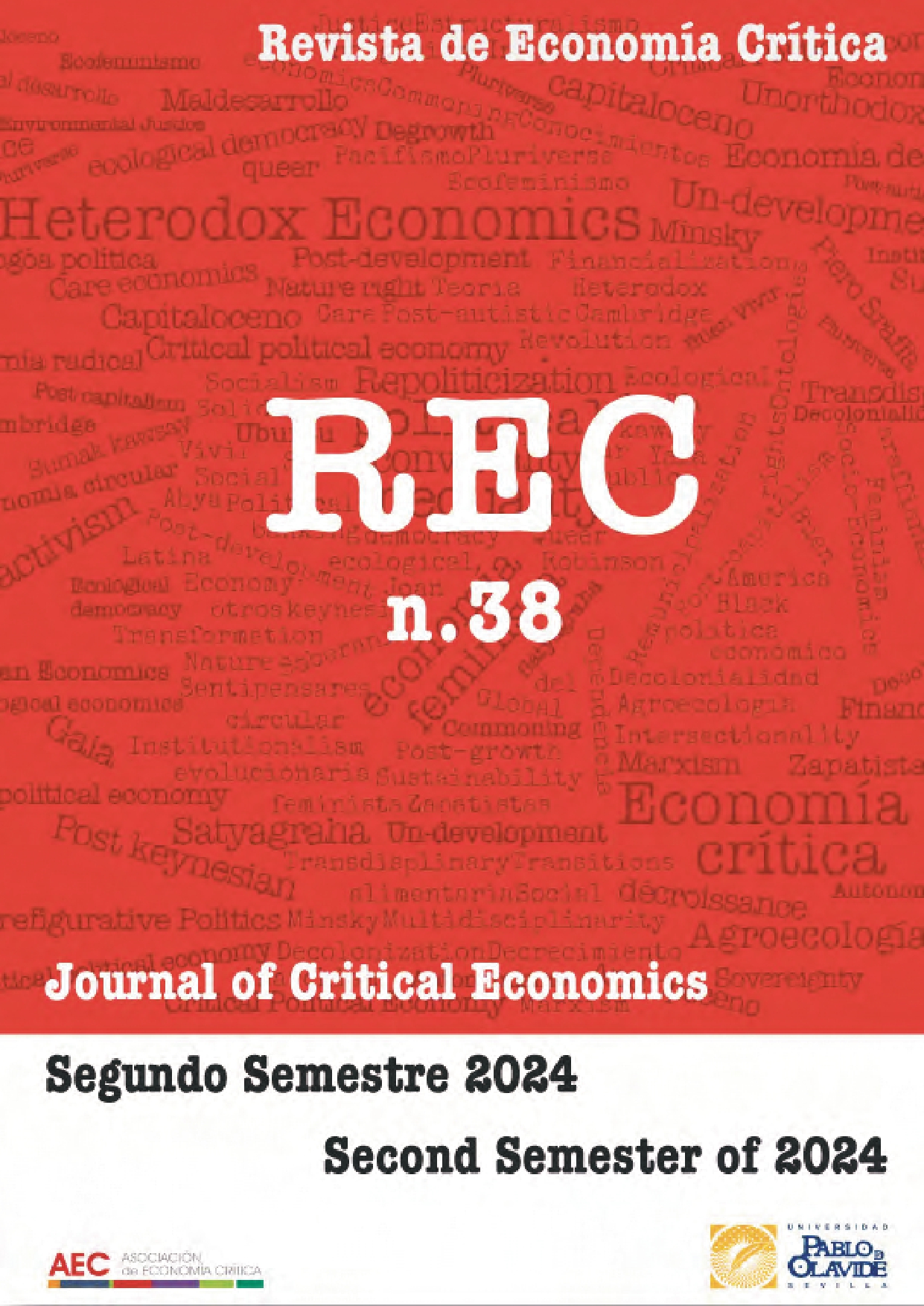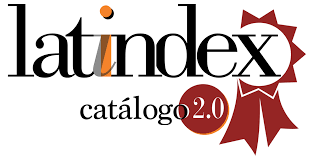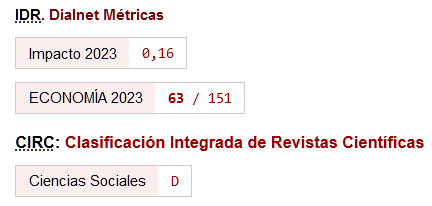Heterodox economics, pluralism and epistemic parity
DOI:
https://doi.org/10.46661/rec.11372Keywords:
Heterodox economics, Pluralism, Epistemic peers, Economic imperialismAbstract
The objective of this paper is to recognize the relationship between methodological pluralism and heterodox economics along with two drifts: reverse imperialism and the debate between epistemic peers. In the first section, four basic varieties of economic pluralism will be presented. Next, the similarity and difference between heterodox economics and mainstream economics will be exposed. The third section will consider in favor of the link between pluralism and reverse imperialism; while the latter will embrace the idea that an honest debate between conciliatory positions of epistemic peers such as would be beneficial to both heterodox and mainstream economics.
Downloads
References
Arnsperger, Christian & Yanis Varoufakis. "Neoclassical Economics: Three Identifying Features." In Pluralist Economics, edited by Edward Fullbrook, 13-26. London: Zed Books, 2008. https://doi.org/10.5040/9781350221772.ch-001
Baghramian, Maria. The Many Faces of Relativism. London: Routledge, 2014. https://doi.org/10.4324/9781315780153
Becker, Gary S. The Economic Approach to Human Behavior. Chicago: University of Chicago press, 1976.
Becker, Gary S. A Treatise on the Family: Enlarged Edition. Cambridge: Harvard university press, 1991. https://doi.org/10.4159/9780674020665
Caldwell, Bruce J. Beyond Positivism. London: Routledge, 2003.
Carrasco, Cristina. "La economía feminista: Una apuesta por otra." In Estudios sobre género y economía, edited by María Jesús Vara, 29-62. Madrid: Akal, 2006.
Coase, Ronald H. "Economics and Contiguous Disciplines." The Journal of Legal Studies 7, no. 2 (1978): 201-211. https://doi.org/10.1086/467590
Colander, David. "The death of neoclassical economics." Journal of the history of Economic Thought 22, no. 2 (2000): 127-143. https://doi.org/10.1080/10427710050025330
Colander, David, Richard Holt & J. Barkley Rosser Jr. "The changing face of mainstream economics." Review of Political Economy 16, no. 4 (2004): 485-499. https://doi.org/10.1080/0953825042000256702
Crespo, Ricardo. Economics and other disciplines. Assessing new economic currents. Londres: Routledge, 2017. https://doi.org/10.4324/9781315629971
Davis, John B. "The turn in economics: neoclassical dominance to mainstream pluralism?" Journal of institutional economics 2, no. 1 (2006): 1-20. https://doi.org/10.1017/S1744137405000263
Davis, John B. "Heterodox Economics, the Fragmentation of the Mainstream, and Embeddedindividual Analysis." In Future Directions in Heterodox Economics, edited by Robert Garnett and J. Harvey, 53-72. Ann Arbor: University of Michigan Press, 2008.
Davis, John B. Individuals and Identity in Economics. Cambridge: Cambridge University Press, 2011.
Davis, John B. "Specialization, fragmentation, and pluralism in economics." European Journal of the History of Economic Thought 26, no. 2 (2019): 271-293. https://doi.org/10.1080/09672567.2018.1555604
Dobusch, Leonhard & Jakob Kapeller. "Heterodox United vs. Mainstream City? Sketching a Framework for Interested Pluralism in Economics." Journal of Economic Issues 46, no. 4 (2012): 1035–1058. https://doi.org/10.2753/JEI0021-3624460410
Dow, Sheila. "Structured pluralism." Journal of Economic Methodology 11, no. 3 (2004): 275-290. https://doi.org/10.1080/1350178042000252965
Dow, Sheila. "Variety of methodological approach in economics." In Foundations for New Economic Thinking, 210-230. London: Palgrave Macmillan, 2012. https://doi.org/10.1057/9781137000729_13
Fullbrook, Edward. "Real science is pluralist." In The Crisis in Economics, edited by Edward Fullbrook, 118-124. London: Routledge, 2003. https://doi.org/10.4324/9780203180440
Fullbrook, Edward. "Narrative Pluralism." In Pluralist Economics, edited by Edward Fullbrook, 83-111. New York: Palgrave Macmillan, 2008. https://doi.org/10.5040/9781350221772.ch-005
Giere, Ronald N. "Perspectival Pluralism." In Scientific pluralism, edited by Sandra H. Kellert, Helen E. Longino, and C. Kenneth Waters, 26-42. Minneapolis: University of Minnesota Press, 2006.
Heise, Arne. "Defining economic pluralism: ethical norm or scientific imperative." International Journal of Pluralism and Economics Education 8, no. 1 (2017): 18-41. https://doi.org/10.1504/IJPEE.2017.083556
Ironmonger, Duncan. "Counting outputs, capital inputs and caring labor: Estimating gross household product." Feminist Economics 2, no. 3 (1996): 37–64. https://doi.org/10.1080/13545709610001707756
Jackson, William A. "Strategic pluralism and monism in heterodox economics." Review of Radical Political Economics 50, no. 2 (2018): 237-251. https://doi.org/10.1177/0486613416670971
Kenning, Peter & Hilke Plassmann. "NeuroEconomics: An overview from an economic perspective." Brain research bulletin 67, no. 5 (2005): 343-354. https://doi.org/10.1016/j.brainresbull.2005.07.006
Laera, Rodrigo. "The economic mathematization: a bibliometric analysis." Atlantic Review of Economics 2, no. 1 (2018): 1-18.
Lari, Tiantian. "When does complementarity support pluralism about schools of economic thought?" Journal of Economic Methodology 28, no. 3 (2021): 322-335. https://doi.org/10.1080/1350178X.2021.1945659
Lawson, Tony. "The nature of heterodox economics." Cambridge Journal of Economics 30, no. 4 (2006): 483–505. https://doi.org/10.1093/cje/bei093
Lee, Frederic. "The Pluralism Debate in Heterodox Economics." Review of Radical Political Economics 43, no. 4 (2011): 540-551. https://doi.org/10.1177/0486613411402643
Mäki, Uskali. "The one world and the many theories." In Pluralism in Economics: New Perspectives in History and Methodology, edited by Andrea Salanti and Ernesto Screpanti, 37-47. Cheltenham: Edward Elgar, 1997. https://doi.org/10.4337/9781781959633.00009
Marchionatti, Roberto & Mario Cedrini. Economics as social science: Economics imperialism and the challenge of interdisciplinarity. London: Routledge, 2016. https://doi.org/10.4324/9781315694047
Nelson, Richard R. & Sidney G. Winter. An evolutionary theory of economic change. Cambridge: The Belknap Press, 1982.
Phelps, Edmund S. "The Statistical Theory of Racism and Sexism." American Economic Review 62, no. 4 (1972): 659-661.
Pritchard, Duncan. "Defusing epistemic relativism." Synthese 166, no. 2 (2009): 397-412. https://doi.org/10.1007/s11229-007-9278-2
Röpke, Wilhelm. The social crisis of our time. Chicago: University of Chicago Press, 1950.
Slade-Caffarel, Yannick. "The nature of heterodox economics revisited." Cambridge Journal of Economics 43, no. 3 (2019): 527–539. https://doi.org/10.1093/cje/bey043
Suh, Jooyeoun, & Nancy Folbre. "Valuing Unpaid Child Care in the U.S.: A Prototype Satellite Account Using the American Time Use Survey." Review of Income and Wealth 62 (2016): 668-684. https://doi.org/10.1111/roiw.12193
Van Bouwel, Jeroen. "Towards a framework for pluralism in economics." Post-autistic economics review 30 (2005): 24-27.
Van Bouwel, Jeroen. "Explanatory pluralism." In Pluralist Economics, edited by Edward Fullbrook, 151-172. London: Zed Books, 2008. https://doi.org/10.5040/9781350221772.ch-009
Waring, Marilyn. If Women Counted: A New Feminist Economic. San Francisco: Harper Collins Publishers, 1990.
Downloads
Published
How to Cite
Issue
Section
License
Copyright (c) 2024 Rodrigo Laera

This work is licensed under a Creative Commons Attribution 4.0 International License.
This licence allows third parties to share (copy and redistribute the material in any medium or format) and adapt (remix, transform and create from the material for any purpose, including commercial purposes), provided that authorship and first publication in this journal (The Journal, DOI of the work) is acknowledged, a link to the licence is provided, and it is stated whether changes have been made to the work.







